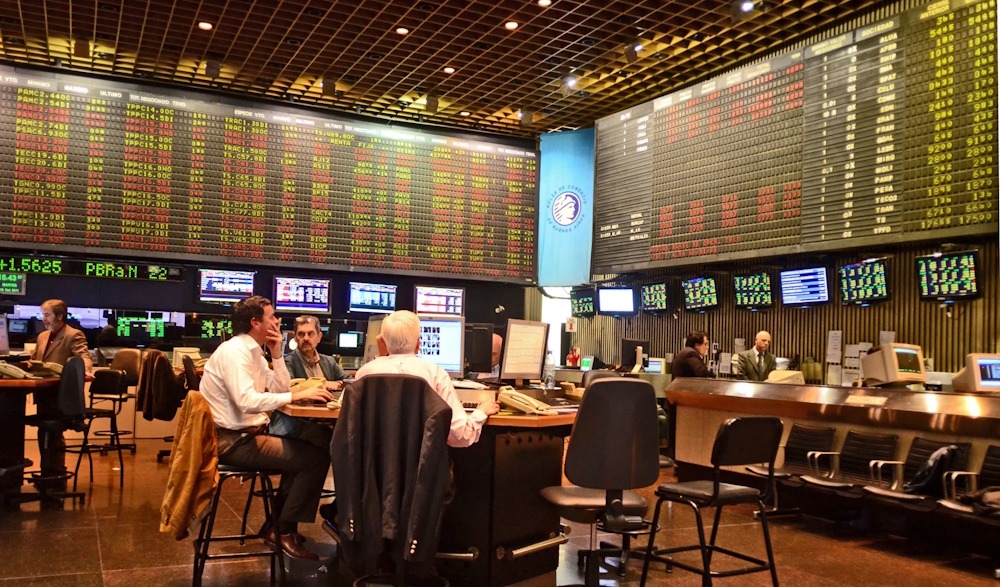Emerging-market money managers are focusing their attention on Latin America for their next significant trade, as a series of forthcoming elections may reshape the political landscape of the region, possibly bringing several countries into closer alignment with Donald Trump. The resurgence of interest follows Argentina’s substantial rally in the wake of President Javier Milei’s victory in the midterm elections, bolstered by unparalleled support from the United States. For numerous observers, it transformed the nation into a case study illustrating how right-leaning political shifts – particularly those viewed as favorable to Trump – can catalyze increases in assets within developing countries. “You are facing a potential shift at the pendulum toward the right in Latin America,” stated Pramol Dhawan. “Should there be a shift towards conservative policies, these assets are poised for significant appreciation – the returns available in Brazilian or Colombian local markets will be unparalleled.”
In the coming year, Chile, Colombia, and Brazil, which are among the largest economies in the region, will conduct presidential elections. Investors are optimistic about a potential transition towards a more market-oriented policy framework in each of these nations. At the core of the trade dynamics involving Argentina are nations such as El Salvador and Ecuador, which investors perceive as more closely aligned with US interests. Dollar bonds from the three nations have provided investors with returns of no less than 24 percent since the election of Trump last year, based on data, compared to a 13 percent return for a benchmark index of sovereign debt from developing nations. The surge underscores the tendency of certain funds to pursue election-specific outcomes as a catalyst for market fluctuations. Zaftra, a Brazilian hedge fund focused on election-driven investments, achieved its highest monthly performance on record in October, with a gain of 9.2 percent after fees, benefiting from Milei’s midterm victory. The fund established a bullish stance on the Chilean peso in anticipation of the country’s first-round vote, which highlighted the rise of another right-wing candidate.
“The perspective of Trump’s administration regarding the Western hemisphere is that it is essentially an extension of its own territory, where the US possesses not merely a right but a duty to intervene, especially in efforts to counteract China’s influence in resource-rich nations such as Chile,” stated Petar Atanasov. The firm maintains a positive outlook on Chile as it approaches the 2026 cycle, focusing on both sovereign bonds and the peso. The initial round of elections in Chile witnessed arch-conservative José Antonio Kast positioned as the frontrunner for the December 14 run-off, which initially led to a rally in the peso before a broader decline in sentiment towards risk assets occurred globally. Polls in Colombia and Brazil indicate an increasing dissatisfaction with left-wing leaders Gustavo Petro and Luiz Inácio Lula da Silva, enhancing the likelihood of more market-oriented results in the coming year. “Where we are expecting change, it’s because electorates are frustrated with the incumbents,” stated Graham Stock. “This holds true in Chile, and likely in Colombia where Petro has not met expectations.”
In 2025, emerging-market assets have generally appreciated as investors pivot from US markets in response to policy fluctuations, with debt restructurings, advancements in IMF agreements, and surges in commodity prices contributing to stabilization. Proximity to the US leader has not consistently yielded advantages; for instance, India’s Narendra Modi has not yet secured a trade agreement with the world’s largest economy. Nonetheless, Trump’s name has remained prominent in emerging markets. In Hungary, Prime Minister Viktor Orban has highlighted the potential for an Argentina-style rescue, leaving investors bewildered as they navigate one of the most robust rallies in emerging market assets. On Monday, Eastern European currencies and Ukraine’s dollar bonds experienced a notable increase following remarks from a senior advisor to President Volodymyr Zelenskyy, indicating that Ukrainian and US negotiators had developed a “updated and refined framework document on peace.” In Latin America, the political landscape is undergoing a recalibration in response to evolving US policies, impacting even one of the globe’s most troubled credits. A more stringent approach from Trump regarding Venezuela is enhancing the value of the nation’s defaulted bonds, with certain bonds experiencing a price increase of 100 percent as investors speculate on the potential removal of Nicolás Maduro. “The probability of regime change has become significantly elevated – we’ve transitioned from a state of no hope for change to a scenario that is approaching a 50/50 likelihood,” Gramercy’s Atanasov stated.

